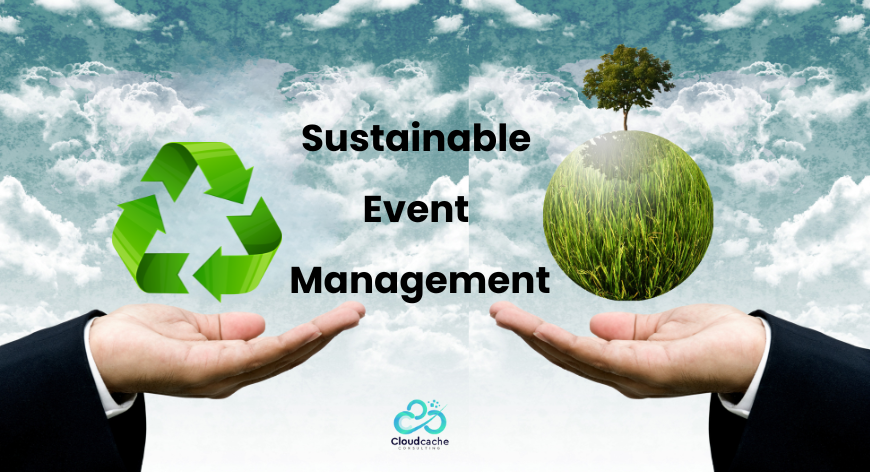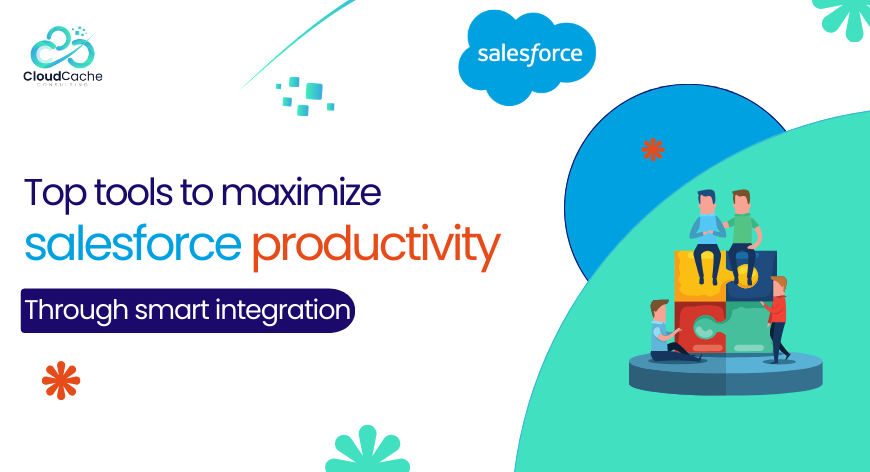
Sustainable Event Management: A Path to Eco-Friendly Experiences
Sustainability has touched every industry with time, including event management. Sustainable event management is a refined approach that targets to minify the negative impacts on social, environmental, and economic while maximizing the positive effects. From reducing waste to conserving resources, the goal is to create events that not only fulfill their purpose but also leave a lasting, positive footprint. With growing awareness of environmental issues, sustainable event planning has become more relevant than ever, benefiting both the planet and the stakeholders involved.
In this article, we will rundown all about sustainable event planning.
What is Sustainable Event Management?
Sustainable event management is a sequence of planning and strategy sets that includes planning of environmentally conscious practices for the execution of events. Whether it’s a large-scale festival or a small conference, sustainable event management ensures that every element, from transportation to waste management, is thoughtfully considered to minimize harm to the environment.
For example, a webinar could offer shuttle services and parking facilities, lowering carbon emissions by reducing the number of vehicles. Similarly, food festivals might serve meals in biodegradable containers, significantly cutting down the waste sent to landfills. These practices demonstrate that sustainability does not have to be complicated or inconvenient. It can be seamlessly incorporated into events to create a greener and more enjoyable experience for attendees.
Moreover, sustainable event management has financial and social benefits. In an effort to reduce the carbon footprints, offering virtual tickets is a good move. According to the Event Managers, sustainability can also protect a brand’s reputation, attract new talent, and enhance long-term success. People are more likely to engage with brands and events that prioritize environmental and social responsibility over those that don’t.
The Environmental Impact of Events
Major events can have a significant environmental impact. Large gatherings, such as concerts, conventions, and festivals, often generate massive amounts of waste, including plastic utensils and food packaging. The energy required to power lighting, stages, and sound systems further adds to the carbon footprint. Additionally, the fossil fuel-powered vehicles used to transport people to and from events contribute to greenhouse gas emissions, although these effects may not always be immediately visible.
Sustainable event planning offers an alternative approach. By implementing greener solutions, event organizers can minimize the negative effects of their gatherings. This shift not only benefits the environment but also appeals to the increasing number of people who are concerned about climate change and the environmental impact of their activities. As more people become conscious of the need to reduce their ecological footprint, sustainable events will likely grow in popularity.
Tools and Resources for Sustainable Event Planning
Sustainable event planning requires the use of specific tools, processes, and resources that reduce waste, conserve energy, and encourage responsible practices among attendees. Organizers can implement various strategies to achieve their sustainability goals.
Digital Tools to Reduce Paper Waste
One of the most effective ways to cut down on waste at events is by reducing the use of paper. From printing contracts to distributing flyers, paper can quickly accumulate, contributing significantly to event waste. Fortunately, digital tools like DocuSign and eversign can eliminate the need for printed forms by allowing important documents to be signed electronically. Social media platforms can also be used to share event information, schedules, and updates digitally, reducing the need for printed materials.
Furthermore, event organizers can encourage attendees to access programs and other event-related content online instead of distributing physical copies.
Biodegradable and Eco-Friendly Products
Events often involve food and drinks, which typically result in large amounts of disposable waste. To address this, organizers can opt for biodegradable cups, plates, and utensils. Companies like Eco-Products and Green Paper Products offer a wide range of eco-friendly options that are compostable and reduce the overall environmental impact of the event.
By choosing sustainable alternatives to traditional plastic and styrofoam products, event organizers send a strong message about their commitment to environmental responsibility.
Energy Conservation
Energy usage is another major concern for event organizers. From lighting and sound systems to electronic displays, events can be highly energy-intensive. However, there are ways to reduce energy consumption without sacrificing the quality of the event.
For smaller events, organizers can use energy-efficient appliances and LED lighting to reduce electricity use. Larger events might explore more ambitious options, such as installing solar panels or utilizing carbon-neutral energy sources. While these measures may require an upfront investment, the long-term benefits include lower energy costs and a reduced carbon footprint.
Challenges in Sustainable Event Management
While the benefits of sustainable event management are clear, the transition to more eco-friendly practices can present challenges. Some of them are as follows.
- Initial investment in sustainable materials and technology: Many green solutions, such as energy-efficient lighting and compostable products, can be more expensive than their traditional counterparts. However, these costs can often be offset by savings in other areas, such as reduced waste disposal fees and energy bills.
- The implementation complexity of a sustainable plan: Event planners must carefully coordinate with vendors, waste management companies, and other partners to ensure that sustainability goals are met. Strong communication and organization are essential for ensuring that all parties are aligned and that the necessary resources, such as recycling bins or compost stations, are available and properly managed.
- Reporting diligence: Event organizers also need to be diligent in measuring and reporting on the success of their sustainability efforts. Tracking metrics like energy usage, waste generation, and carbon emissions can help planners assess the effectiveness of their strategies and identify areas for improvement.
Opportunities in Sustainable Event Planning
Despite these challenges, the opportunities for sustainable event planning are vast. As more people and organizations prioritize environmental responsibility, the demand for eco-friendly events is likely to grow. Event organizers who embrace sustainability can position themselves as leaders in this emerging field, attracting clients, attendees, and partners who share their values.
Additionally, the rise of digital and virtual events presents new possibilities for reducing the environmental impact of gatherings. Offering virtual attendance options, for example, allows people to participate in events without the need for travel, reducing both costs and carbon emissions. As technology continues to evolve, the potential for integrating sustainable practices into event planning will only expand.
Our Commitment to Sustainable Event Management
For us, sustainability is not just a trend—it’s our foundation and fundamental principle we strive for. Every event CloudCache Consulting manages is designed with environmental consciousness in mind, ensuring that sustainability is integrated into every aspect. Here’s how we make it happen:
- Biodegradable Pamphlets: The pamphlets we distribute are made from biodegradable paper, which can be planted as seeds after use, reinforcing our dedication to green practices and environmental conservation.
- Eco-Friendly Giveaways: We ensure that all event giveaways are either recyclable, biodegradable, or made from e-waste. Our team uses bamboo or jute bags to completely eliminate single-use plastic.
- Compostable Meal Packaging: All meal packaging during the event is 100% compostable. To ensure proper waste management, our staff is stationed in dining areas to guide attendees in sorting their waste correctly.
- Badge and Lanyard Recycling: We provide designated bins for badge and lanyard recycling at various locations. After the event, attendees can drop off their badges, which are then recycled in line with our sustainability efforts.
- Green Transportation: We actively encourage attendees to walk, use public transport, or opt for EV or hybrid rideshares when traveling to and from events, reducing our carbon footprint.
Sustainability is embedded in everything we do, ensuring a lasting positive impact on the environment while hosting memorable events.
The Future of Sustainable Event Management
As the world faces increasing environmental challenges, the pressure on industries, including event management, to adopt greener practices will only intensify. Event organizers who prioritize sustainability will not only help protect the planet but also stand to benefit from enhanced reputations, increased profitability, and deeper connections with attendees.
Sustainable event management depicts a transition towards a more principled and reliable process to organizing events. By reducing waste, conserving resources, and engaging attendees in the importance of environmental responsibility, event planners can create memorable experiences that leave a positive legacy. In the coming years, sustainable event management will likely become the new standard, driving innovation and creativity while ensuring that the events of today don’t come at the expense of tomorrow’s environment.
Conclusion
The combo of sustainability and event management is a powerful one, shaping the future of events in a way that is both exciting and essential. Whether through energy conservation, waste reduction, or digital innovation, sustainable event planning is an investment in a greener, more prosperous future.
CloudCache Consulting always keeps in mind sustainability while organizing events . We are committed to have sustainable events and do it with proper management.











Leave a Reply
Your email address will not be published.